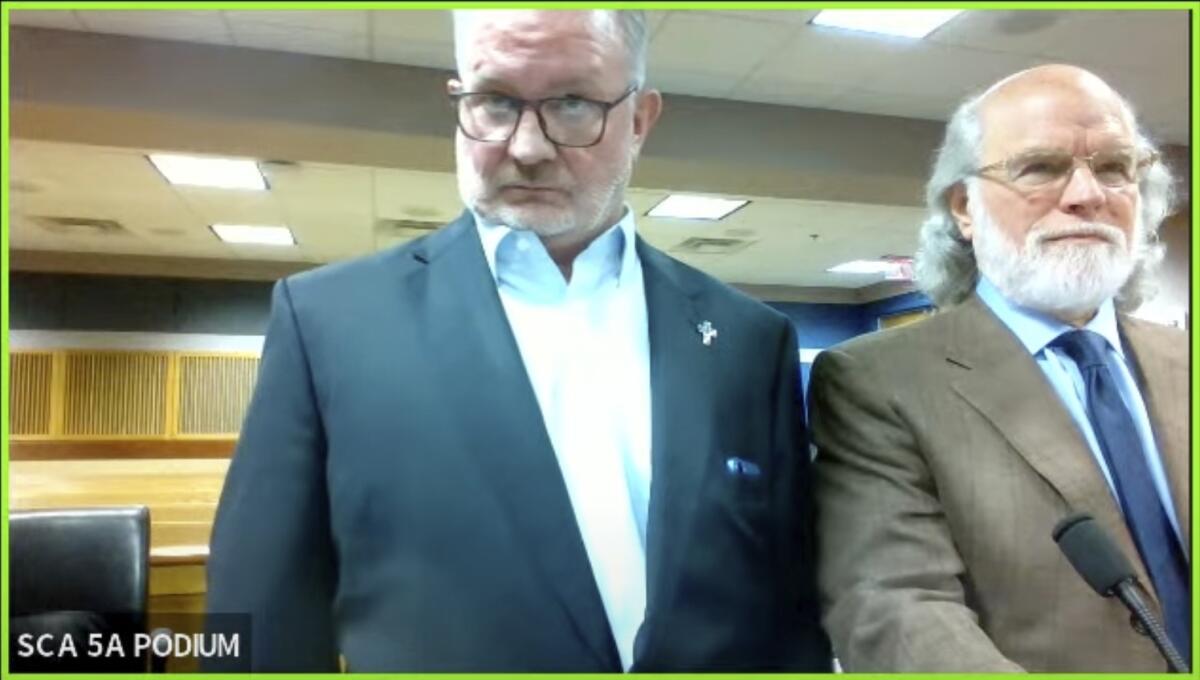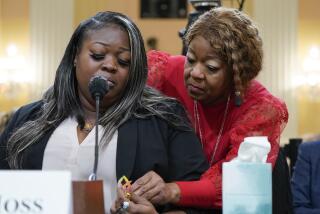Bail bondsman charged alongside Trump in Georgia is first defendant to take a plea deal

ATLANTA — A bail bondsman charged alongside former President Trump and 17 others has become the first defendant in the Georgia election interference case to accept a plea deal with prosecutors.
Scott Hall pleaded guilty in court Friday to five counts of conspiracy to commit intentional interference with performance of election duties, all misdemeanors. Prosecutors had accused him of participating in a breach of election equipment in rural Coffee County.
He will receive five years of probation and agreed to testify in further proceedings as part of the deal.
Hall is one of the lower-level players in the indictment filed last month alleging a wide-ranging scheme to overturn Democrat Joe Biden’s presidential victory and keep the Republican Trump in power. But the plea deal nonetheless is a major development in the case and marks a win for Fulton County Dist. Atty. Fani Willis as she pursues a historic racketeering case against a former president.
Earlier Friday, a judge rejected a request by former Justice Department official Jeffrey Clark to move the Georgia election subversion charges against him from state court to federal court.
U.S. District Judge Steve Jones said he was making no ruling on the merits of the charges against Clark, but he concluded that the federal court has no jurisdiction over the case. He said “the outcome of the case will be for a Fulton County judge and trier of fact to ultimately decide.”
Jones had earlier rejected a similar request from Trump White House Chief of Staff Mark Meadows. He is weighing the same question from three Georgia Republicans who falsely certified that then-President Trump won in 2020.
The practical effects of moving to federal court would have been a jury pool that includes a broader area and is potentially more conservative than Fulton County alone and a trial that would not be photographed or televised, as cameras are not allowed inside federal courtrooms. But it would not have opened the door for Trump, if he’s reelected in 2024, or another president to issue pardons because any conviction would still happen under state law.
The indictment says Clark wrote a letter after the election that said the Justice Department had “identified significant concerns that may have impacted the outcome of the election in multiple States, including the State of Georgia” and asked top department officials to sign it and send it to Georgia Gov. Brian Kemp and state legislative leaders. Clark knew at the time that that statement was false, the indictment alleges.
Clark’s attorneys had argued that the actions described in the indictment related directly to his work as a federal official at the Justice Department. Clark at the time was the assistant attorney general overseeing the environment and natural resources division and was the acting assistant attorney general over the civil division.
But the judge said Clark provided no evidence to show that he was acting within the scope of his role in the Justice Department when he wrote a letter in December 2020 claiming the department was investigating voter irregularities. “To the contrary, the evidence before the Court indicates the opposite: Clark’s role in the Civil Division did not include any role in the investigation or oversight of State elections,” Jones wrote.
More to Read
Get the L.A. Times Politics newsletter
Deeply reported insights into legislation, politics and policy from Sacramento, Washington and beyond. In your inbox three times per week.
You may occasionally receive promotional content from the Los Angeles Times.










